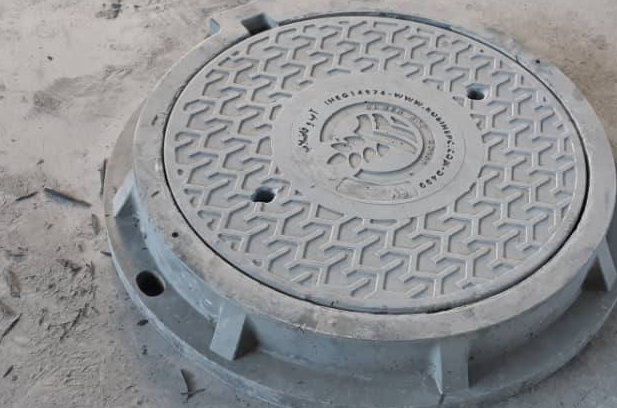These manhole covers are made from a sturdy material that is a combination of fiberglass and polymer resins like vinyl ester, polyethylene, or polyester. This material is known to possess a very high strength-to-weight ratio, which positions it at the forefront of most urban development projects.
Common Problems with Manhole Covers and How GRP Resolves Them
The following are some very common issues with manhole covers, along with the solutions that GRP manhole covers offer to resolve these.
1. Low Strength
Traditional manhole covers made from iron or steel possess very low strength. These covers are prone to wear and tear, which over time makes them weaker. The low strength also affects the load-bearing capacity of these covers, which creates hazards down the line.
How GRP Manhole Covers Solve This Issue?
GRP manhole covers are made from the highest quality fiberglass and resin mixture that gives you greater flexibility. These covers are so strong that they can easily bear loads of up to 40 tons without cracking or deformation.
2. Corrosion
Another major problem with manholes is corrosion. These covers installed in public walking zones or industries where moisture levels are high get rusty very quickly.
The iron or steel covers can react with moisture or water in the surroundings, which leads to the formation of a reddish-brown substance on the surface of the metal. This substance weakens the covers and can even cause them to completely break down.
How GRP Manhole Covers Solve This Issue?
The non-metallic nature of GRP manhole covers makes them resistant to corrosion or rusting. This means you can freely use them in areas with elevated moisture levels without fearing any damage.
3. Theft
Traditional heavy manhole covers made from iron or steel have a high scrap value. This makes them an easy target for thieves who can resell them for money.
How GRP Manhole Covers Solve This Issue?
With GRP covers, the risk of theft is reduced significantly. These covers are made from a composite material that is a mix of fiberglass and polymers. The recycling of this material requires special procedures as it is not easy to separate glass fibers or resins using simple physical means.
The scrap or resale value of the GRP covers is very low compared to regular manhole covers, which makes them unattractive for thieves.
4. Low Impact Resistance
Regular manhole covers have a very low impact resistance. Using these covers in heavy traffic areas or in industries where heavy machinery is constantly being used is not advised.
How GRP Manhole Covers Solve This Issue?
GRP covers possess greater durability and structural strength. These covers are not prone to breakage since they can easily absorb heavy impacts due to their inherent flexibility.
5. Slippery Surfaces
Another big issue with traditional covers is their highly slippery surfaces. When used in public walking areas or pool sides, these manhole covers pose serious safety hazards.
How GRP Manhole Covers Solve This Issue?
With GRP manhole covers, these risks are eliminated. These covers can be reinforced with carbon or silicon to make their surfaces less slippery. Apart from that, these covers can also be imprinted with textures or designed with gritted surfaces, which gives them a better grip. This makes GRP manhole covers a much safer option in industrial and domestic settings.
6. Electrical Hazards
Typical manhole covers pose electrical hazards. Iron and aluminium are both exceptional conductors of electricity. This means using these to cover manhole chambers that contain electrical systems is a bad idea. Electricity can easily find its way to these covers, which can lead to electrical shocks or even short circuits.
How GRP Manhole Covers Solve This Issue?
GRP manhole covers are perfect insulators, meaning they do not allow the passage of electric current. The non-conducting nature of these covers prevents them from absorbing or transmitting electricity or heat, which makes them a much safer option.
7. Difficult Handling and Maintenance
Traditional covers are extremely heavy. This makes it very difficult to install or remove them for maintenance or repairs. There are also greater injury risks when handling these heavy manhole covers.
How GRP Manhole Covers Solve This Issue?
GRP manhole covers are very lightweight. Based on the size, they can weigh somewhere between 5 to 120 Kg, which is a fraction of the weight of the same-sized iron or aluminium covers.
These lightweight covers can be easily installed, removed, or cleaned. This makes these covers very low maintenance and risk-free in terms of their handling.
Conclusion
Traditional manhole covers come with so many issues, such as low impact resistance, theft risks, electrical hazards, corrosion, and high maintenance, to name just a few. The drawbacks of these covers far outweigh their very few benefits, which is why experts recommend GRP manhole covers for most urban development projects.
These covers offer enhanced safety, durability, functionality, and aesthetics. These low-maintenance covers have a much longer life, which leads to significant time and cost savings. This makes GRP manhole covers the perfect solution for all major commercial and residential projects.
Visit us at Naran Precast Concrete Co. to buy our top-quality GRP/Polypropylene/ HDPE manhole chambers and GRP/DI manhole covers for use in all industrial or domestic applications.

